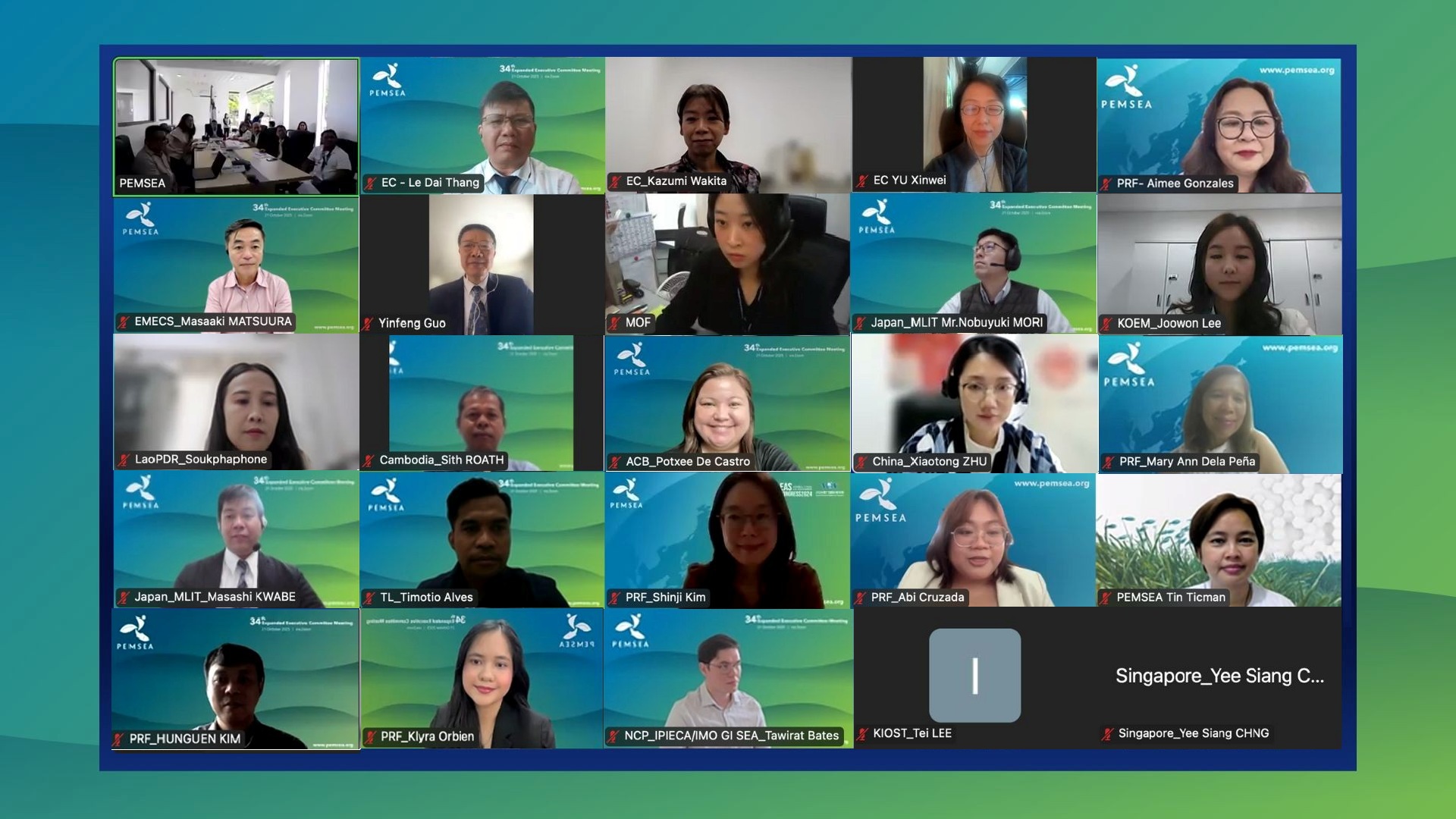17th EAS Partnership Council Meeting Convenes in Manila
Thursday, 31 July 2025
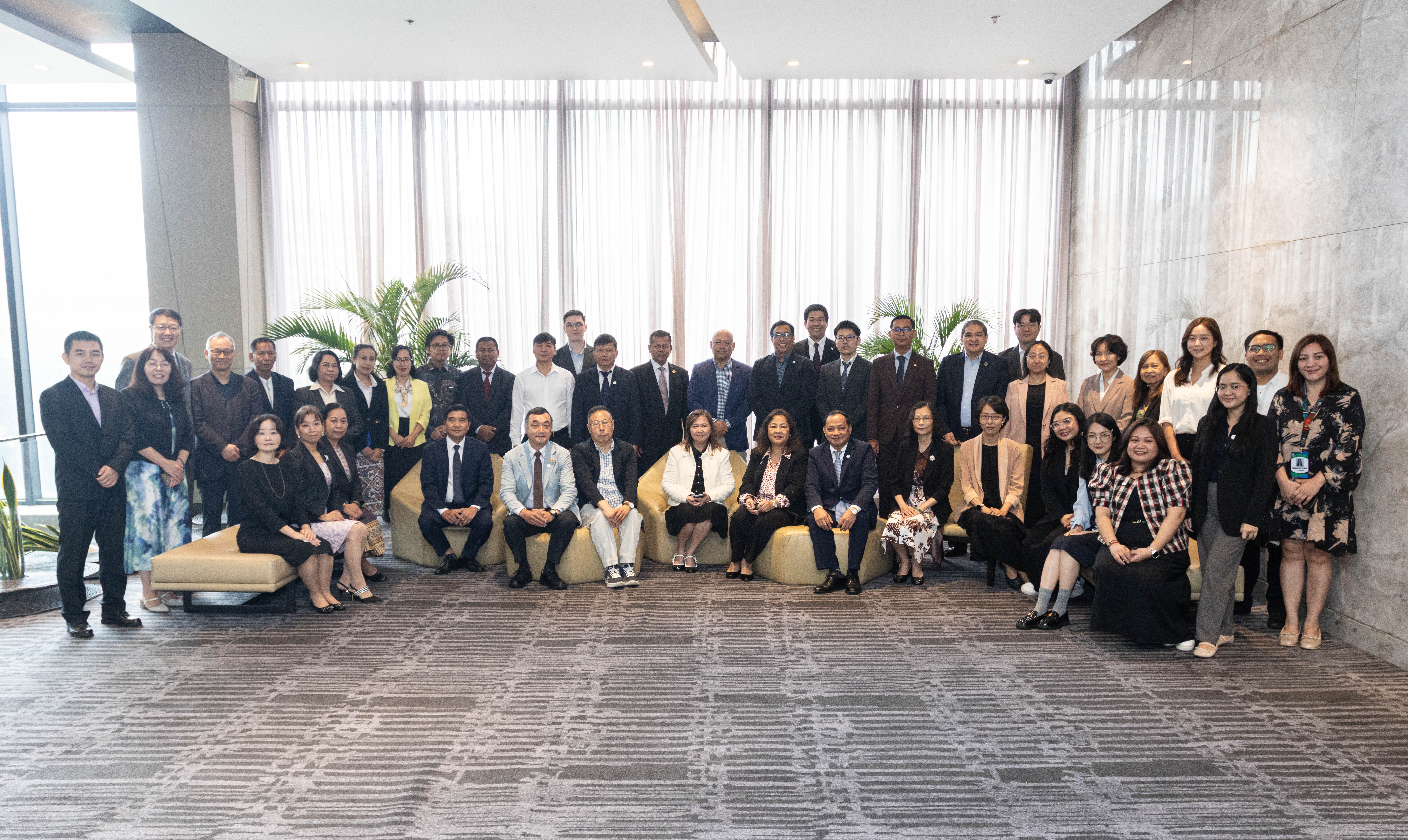
PEMSEA Country and Non-Country Partners successfully convened for the 17th East Asian Seas Partnership Council (EAS PC) Meeting in Manila, Philippines on 22-23 July 2025, addressing critical policy matters centered on sustainable ocean governance, blue economy initiatives including on blue carbon, and institutional strengthening.
The meeting addressed key regional priorities, including the progress review of the Sustainable Development Strategy for the Seas of East Asia Implementation Plan (SDS-SEA IP) 2023-2027, advancement of the PEMSEA Blue Carbon Program, and strategic planning for organizational sustainability.
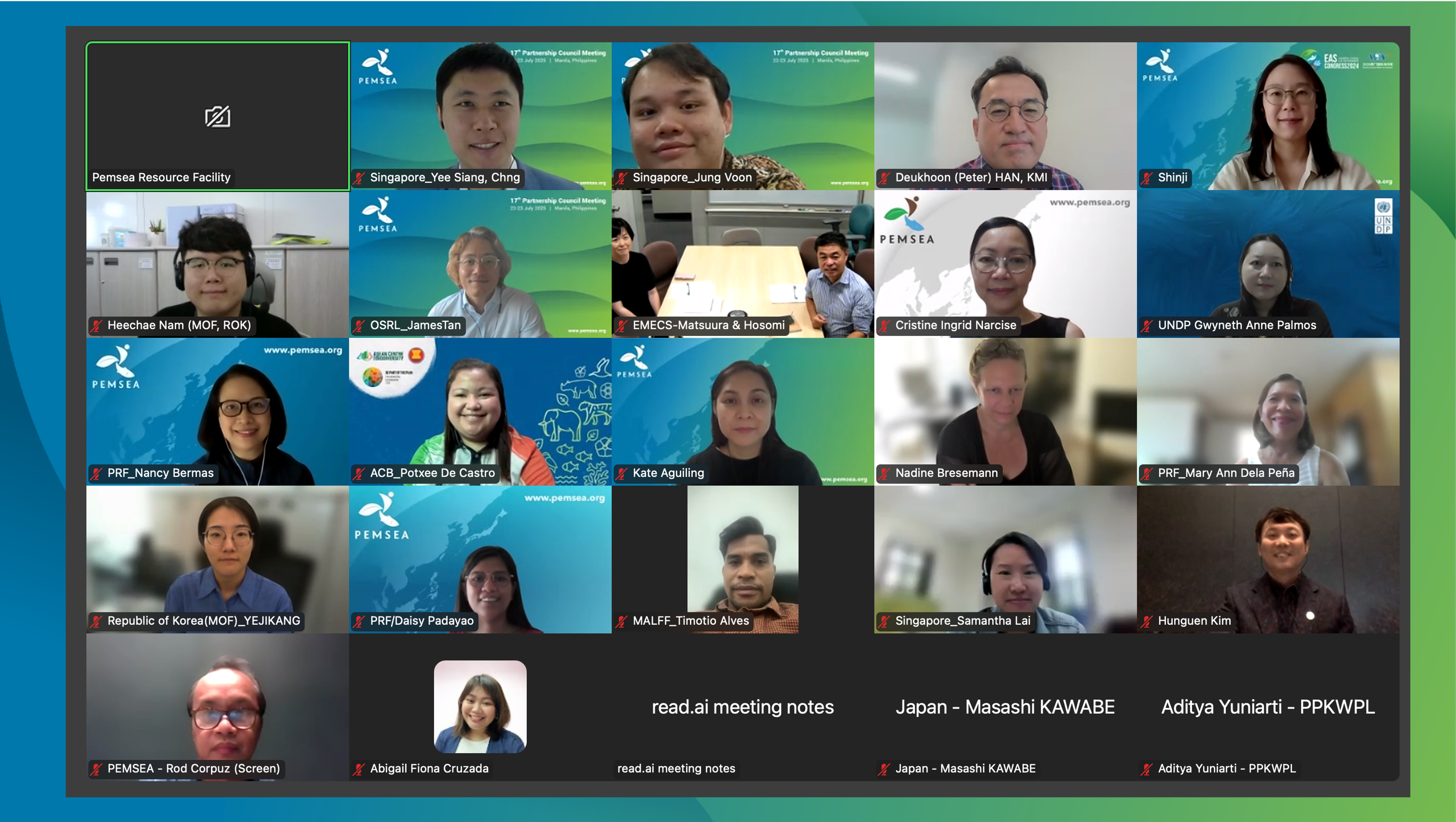
In her welcome remarks, DENR Undersecretary and PEMSEA National Focal Point for the Philippines, and host of the 17th EAS PC meeting Usec. Analiza Rebuelta-Teh emphasized the timeliness of the meeting, noting that it comes as many countries in the region are updating their Nationally Determined Contributions (NDCs) under the Paris Agreement.
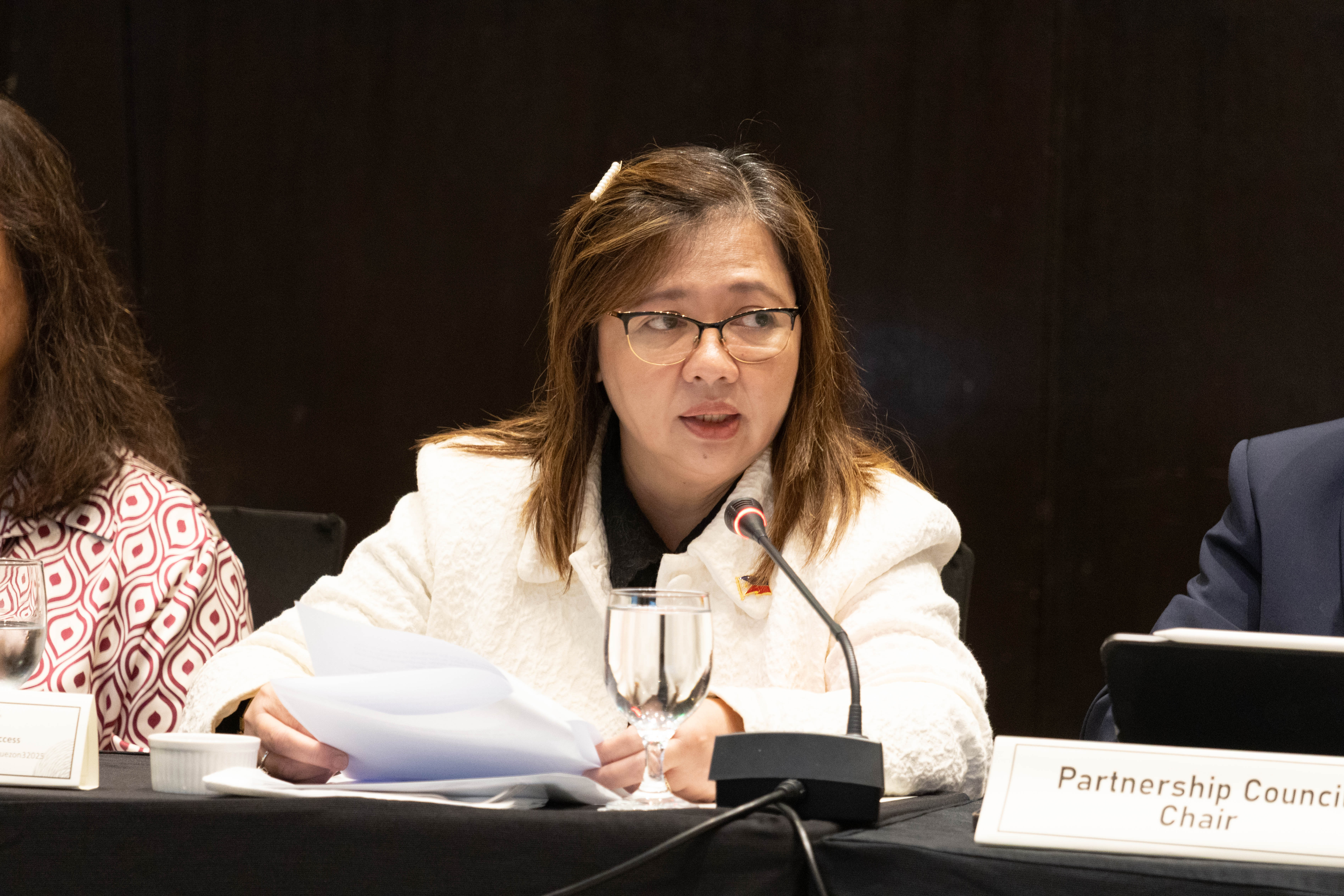
“This year’s Council Meeting arrives at a particularly pivotal moment for all our nations. As many of our countries prepare to update and enhance their NDCs under the Paris Agreement, we recognize the importance of regional collaboration in aligning our efforts,” she said.
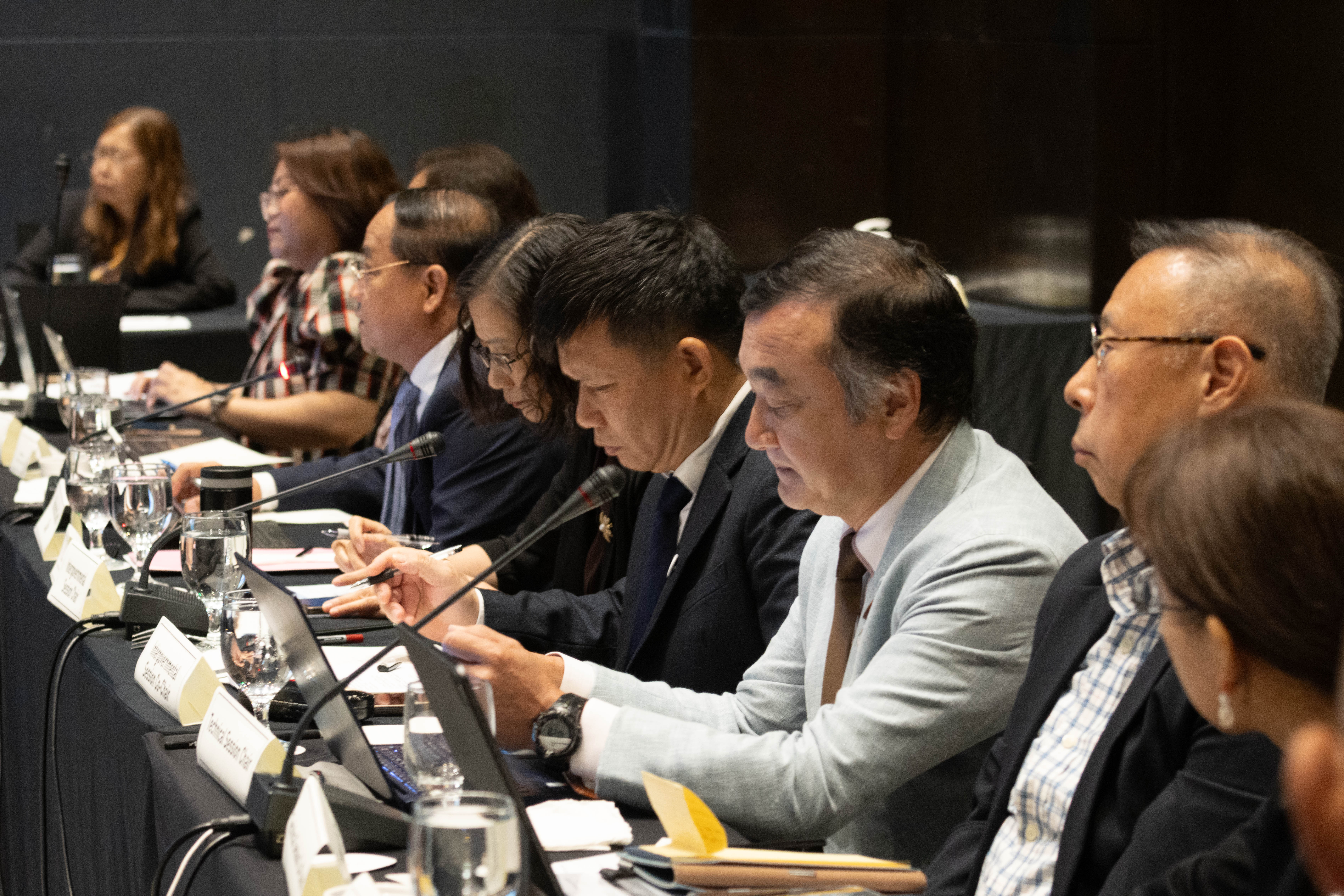
The Council Session also approved the election of new EAS PC Officers and Co-Chairs for the 2025-2028 term and the selection and recruitment of the PEMSEA Resource Facility (PRF) Executive Director position for 2027-2029.
The Council approved the Council Chair's report and welcomed the Executive Director's comprehensive review of PEMSEA Resource Facility's achievements in 2024, with Country Partners emphasizing the critical importance of aligning future actions with global and regional priorities, strengthening national implementation capabilities, and enhancing knowledge dissemination mechanisms across all participating jurisdictions.
Technical Session Reviews SDS-SEA Implementation Plan
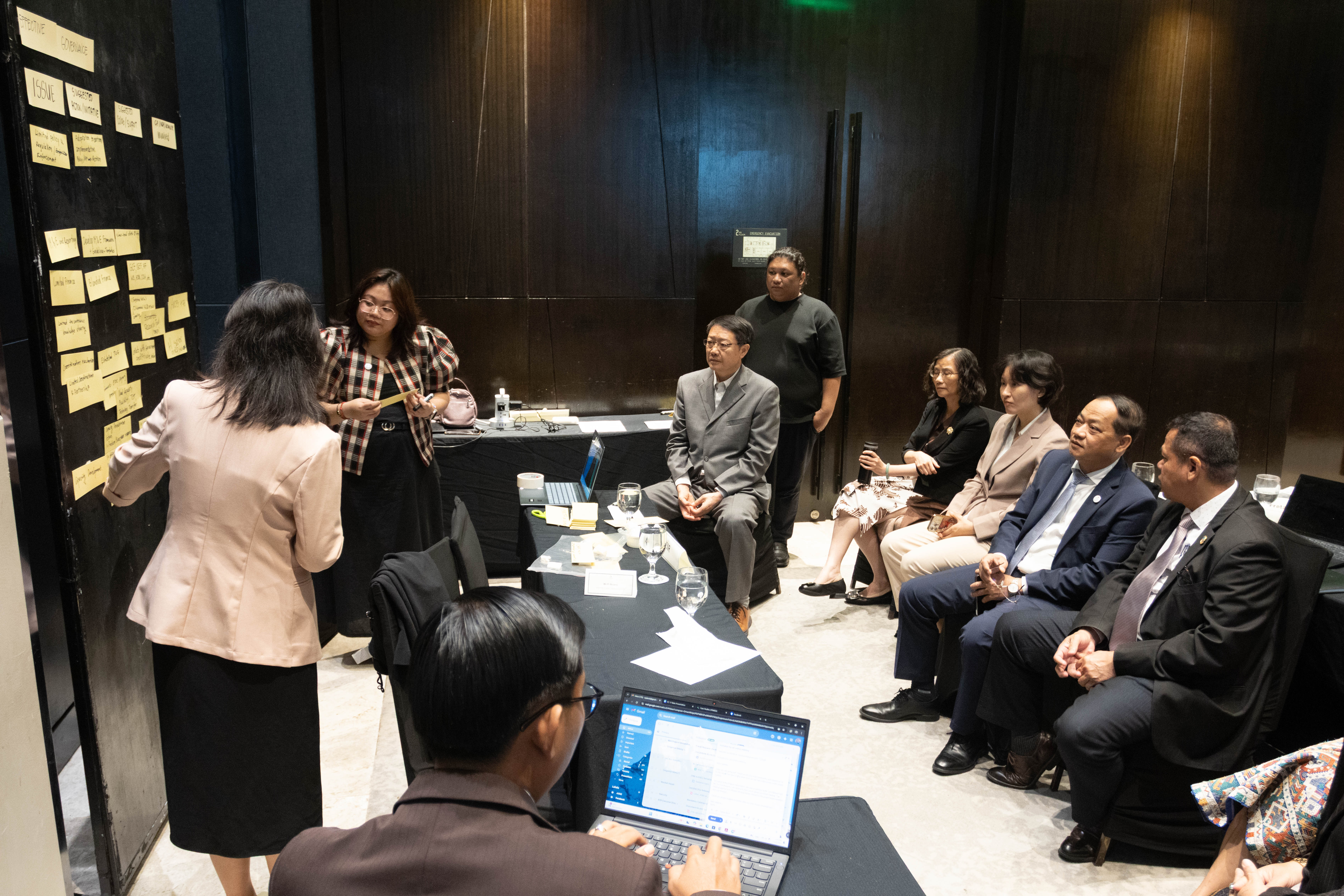 | 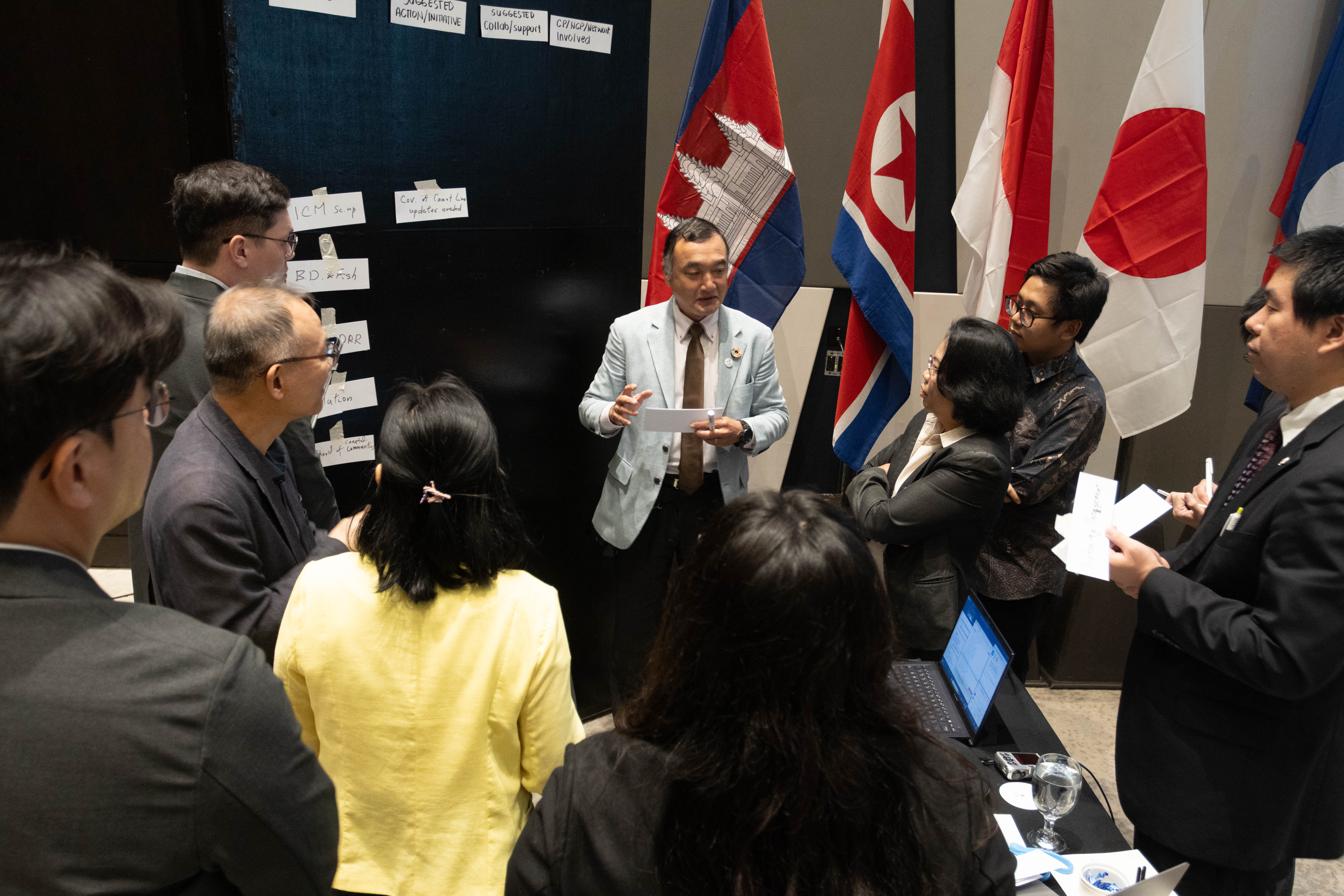 |
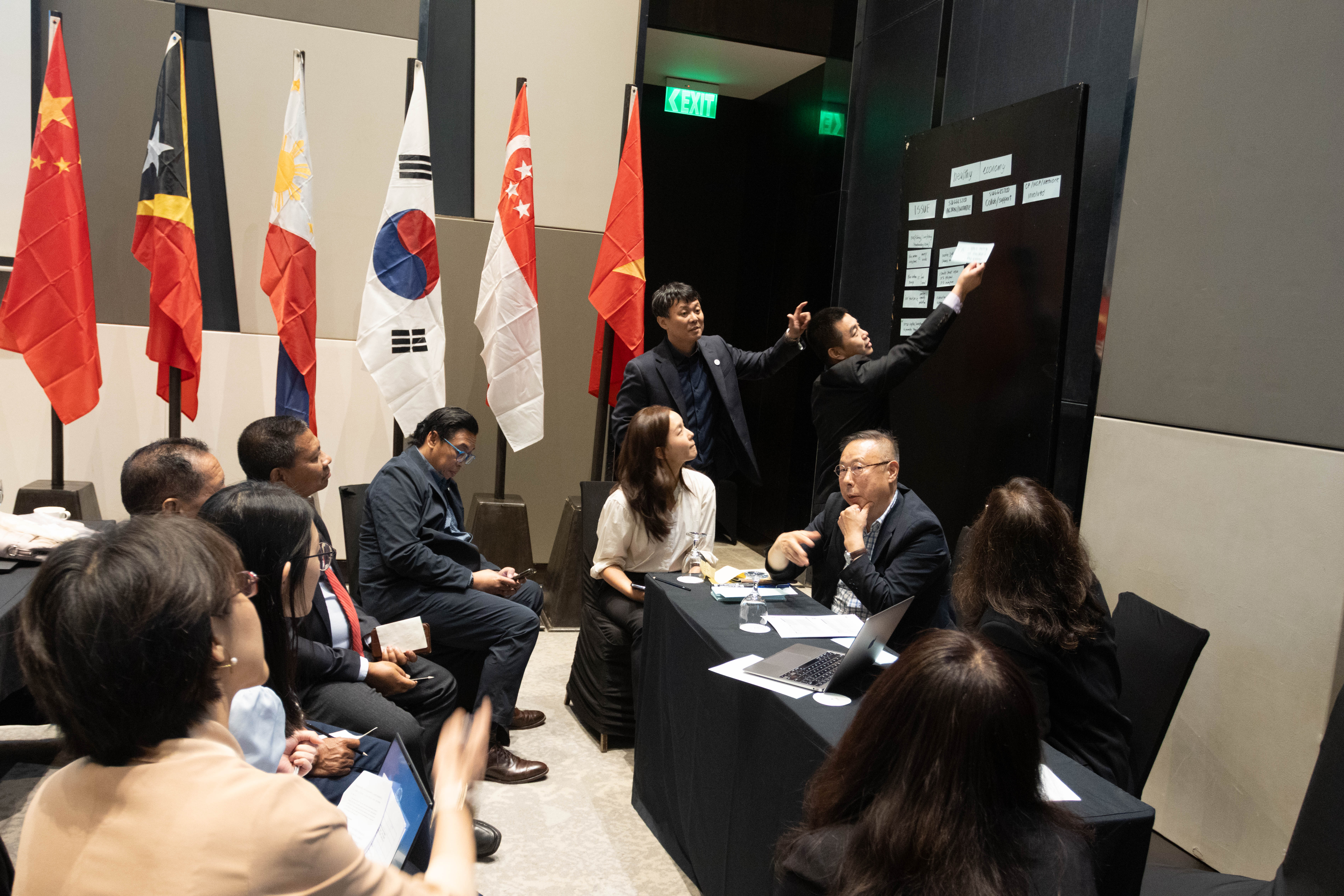 | 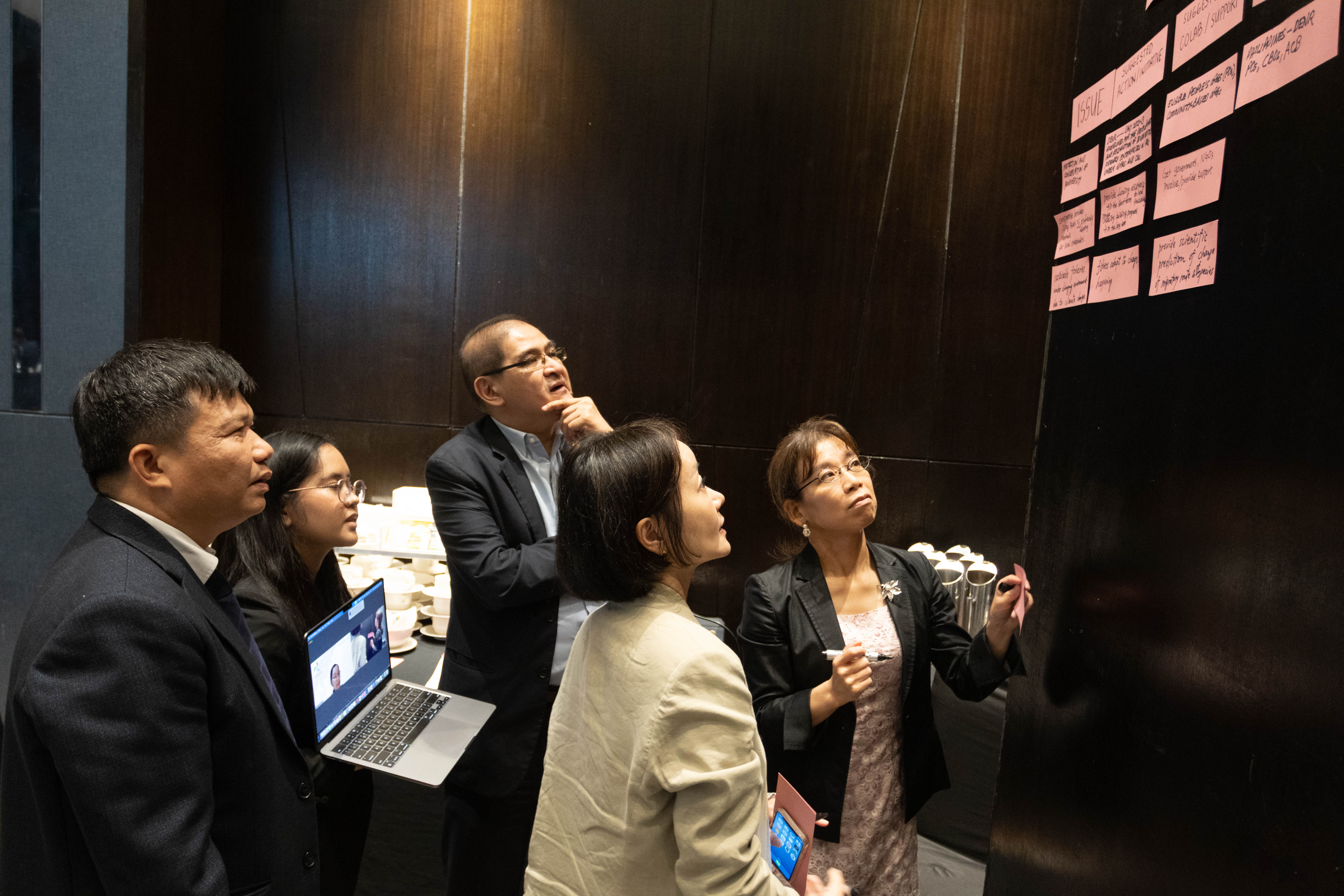 |
Parallel to these governance initiatives, the Technical Session conducted an extensive review of progress and recommendations regarding the SDS-SEA IP vis-à-vis UN SDG 2030 targets, acknowledging the region’s progress and achievements while emphasizing the necessity for an extended implementation plan to align with UN SDG 2030 targets and consider evolving regional priorities.
Country and Non-Country Partners underscored the fundamental importance of aligning with global frameworks, integrating Integrated Coastal Management (ICM) mechanism with tolls like Marine Spatial Planning (MSP) as foundational requirements in engaging in blue economy actions, improving reporting and institutional mechanisms, and mobilizing financing and partnerships for priority coastal and marine initiatives.
Blue Carbon Program Gains Support
The Technical Session welcomed significant progress on the PEMSEA Blue Carbon (BC) Program especially on the development of a Blue Carbon Ecosystem Services Management Mechanism (BCESMM) which serves as an overarching framework for quantifying and managing blue carbon ecosystem services in the region. The mechanism aims to support the conservation and sustainable development through innovative market mechanisms beyond traditional carbon credits.
It also discussed progress of the blue carbon accounting protocol which aims to provide a harmonized methodology for carbon stock estimation of coastal ecosystems across the region.
Intergovernmental Session Advances PEMSEA’s Sustainability Agenda
Building on the momentum of institutional strengthening, the Intergovernmental Session discussed updates on the PEMSEA Sustainability Plan focused on institutional strengthening and diversifying funding sources, beyond grants to offering services and blended financing to country partners and other stakeholders.
The Partnership Council urged all PEMSEA Partners and collaborators to work collaboratively in ensuring that ongoing initiatives are effectively incorporated into regional programming while maintaining alignment with global ocean governance priorities and emerging coastal management challenges.
In her closing remarks, Director General Chen Danhong and outgoing Chair of the East Asian Seas Partnership Council Intergovernmental Session, reflected on the Council’s collective progress and reaffirmed the region’s commitment to ocean governance through national and regional cooperation.
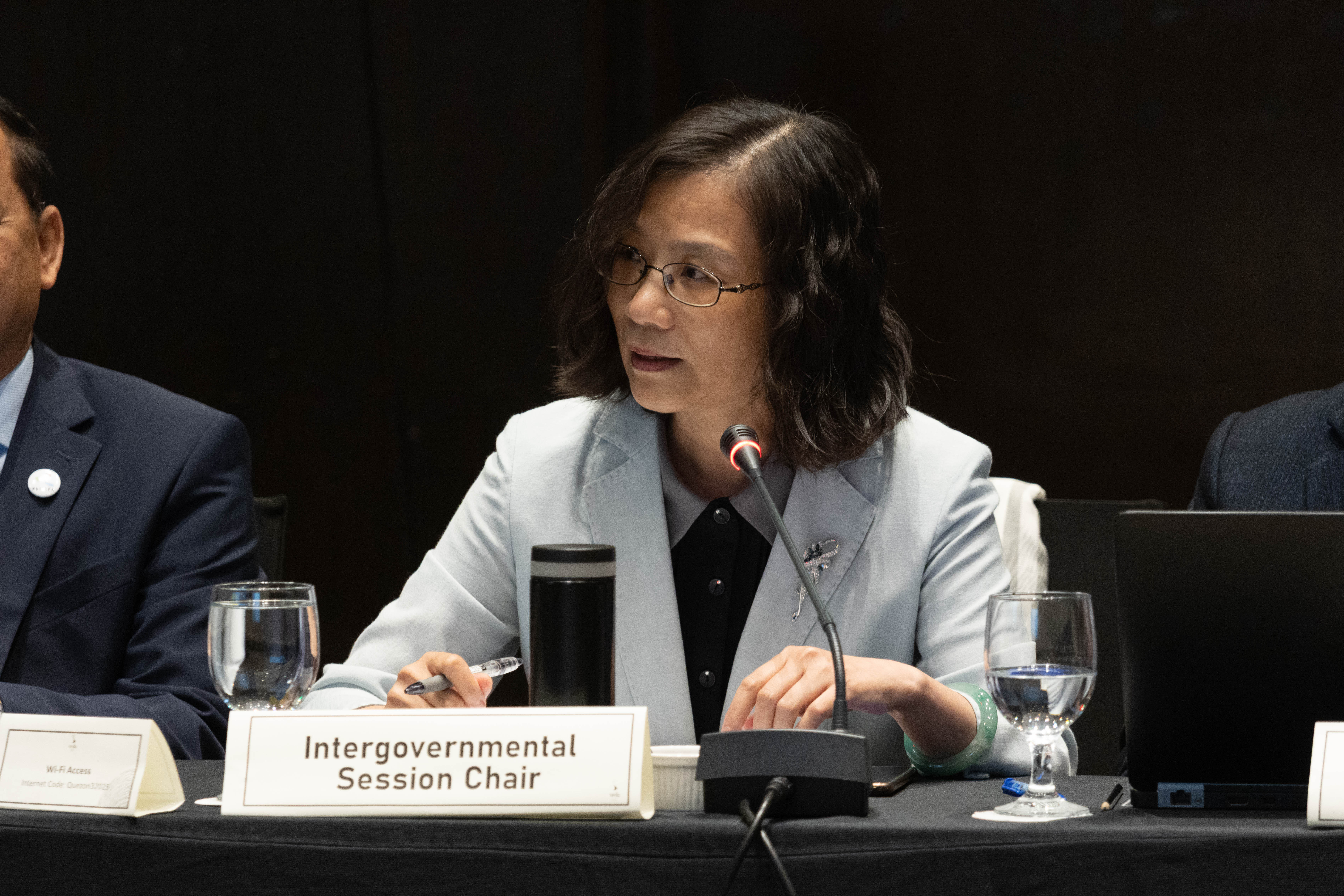
“We reaffirmed that implementation of the SDS-SEA to 2030 requires stronger national ownership, closer alignment with government programs, and the scaling up of financial and institutional support,” she said.
DG Chen, who concluded her term as Intergovernmental Session Chair, described the occasion as especially meaningful, expressing pride in the partnerships formed and milestones reached under her leadership. She called it a privilege to have served alongside dedicated and visionary colleagues, and voiced optimism about the future being shaped for the region.
The 17th EAS PC Meeting was attended by Country Partners including Cambodia, China, Indonesia, Japan, Lao PDR, Philippines, Republic of Korea, Singapore, Timor-Leste, and Vietnam, alongside Non-Country Partners representing institutional expertise in marine environmental management, blue economy, and sustainable ocean governance.
Representatives from various specialized organizations, including the ASEAN Center for Biodiversity, Conservation International, Ipieca GISEA, Korea Marine Environmental Management Corporation (KOEM), KIOST, KMI, Oil Spill Response Ltd. China's National Marine Hazard Mitigation Services and the Plymouth Marine Laboratory, among others, participated actively in technical discussions and committed to continued collaboration in advancing regional ocean sustainability objectives.
The 17th EAS Partnership Council Meeting Proceedings will be made available on the PEMSEA website on 15 August 2025.




